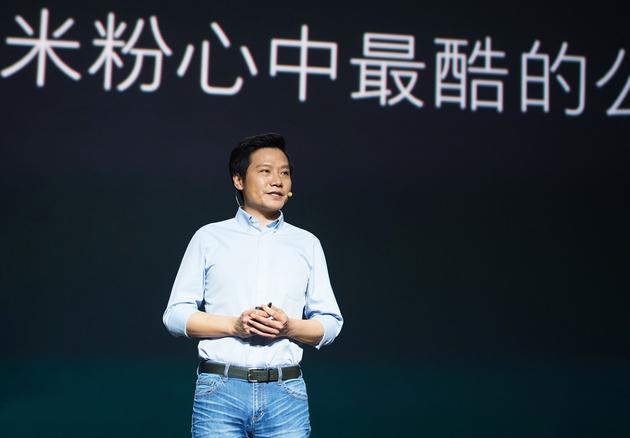
Lei Jun (Photo/VCG)
Nov. 20 (NBD) – Statistics indicates China's electrical appliance vendor Gree's revenue and net profits outnumbered those of the smart phone maker Xiaomi in the third quarter of this year.
But Xiaomi has outperformed Gree in terms of market capitalization. Based on the closing price on Monday, the smart phone manufacturer was worth HKD307.1 billion (39.14 billion U.S. dollars) in market value while the household appliance maker was valued at 233.8 billion yuan (33.74 billion U.S. dollars).
With only one month left in 2018, the result of the 1-billion-yuan (144.34 million U.S. dollars) bet between Lei Jun, founder of Xiaomi, and Dong Mingzhu, chairwoman and president of Gree, is about to come to light.
The bet can be traced back to December 12, 2012 when Lei Jun asked 1 yuan (0.14 U.S. dollar) from Dong Mingzhu if Xiaomi could exceed Gree in terms of revenue within 5 years. But Dong immediately responded, challenging Xiaomi to pass Gree with the bet lifted up to 1 billion yuan.

Lei Jun (Photo/VCG)
Xiaomi's Q3 financial report released late yesterday shows its revenue for the third quarter reached 50.8 billion yuan (7.33 billion U.S. dollars), a year-over-year increase of 49.1 percent. Adjusted net profits stood at 2.9 billion yuan (418.59 million U.S. dollars), a rise of 17.3 percent over the previous year.
For the July-September period, Gree notched up revenue of 57.7 billion yuan (8.33 million U.S. dollars), a year-over-year increase of 38.46 percent. Net profits came at 8.31 billion yuan (1.20 billion U.S. dollars), a rise of 38.35 percent over the previous year.
During the five years since the bet was made, both companies had their ups and downs.
The second quarter of 2014 saw Xiaomi overtake the South Korean multinational conglomerate Samsung as the biggest smart phone maker in China.
After a period of rapid expansion, Xiaomi suffered a tough time due to weak foundation. In 2016, the firm fell out of the top 5 smart phone vendors in terms of shipment volume. But after the defeat, Xiaomi regained fast development and enjoyed a rebound.
Currently Xiaomi not only sells smart phones but also gains a foothold in the internet services, IoT and daily consumer goods industries, as well as overseas markets.

Dong Mingzhu (Photo/VCG)
As for its rival Gree, the electrical appliance vendor has embarked on making smart phones and investing in new energy cars and chips.
In Dong Mingzhu's expectation, Gree will be a diversified, globalized industrial corporation. Currently the electrical appliance maker has completed a full layout in strategic emerging industries such as high-end smart appliances, industrial robots, numerical control, energy technologies and precision molds and tools.
Gree aims to generate revenue of 200 billion yuan (28.87 billion U.S. dollars) this year, said Dong Mingzhu in May. But the company will be under lots of pressure in achieving its goal since the domestic air conditioner market has been seeing a downward trend since July this year due to the sluggish real estate market.
When asked about the bet, Lei Jun was quite optimistic. With the help of the Internet, Xiaomi is very likely to surpass Gree in terms of revenue, he noted.
If the strong growth momentum continued, Xiaomi would get close to but would still face difficulties in surpassing Gree in revenue for the fourth quarter.
However, considering the fourth quarter witnessed big promotions on the Double 11 Festival and an off-season for the air conditioner sector, the result of the bet is still full of uncertainties. And from a long-term perspective, Xiaomi, a representative of new economy, will obtain more sustained momentum for development.
Email: wenqiao@nbd.com.cn


 川公网安备 51019002001991号
川公网安备 51019002001991号





